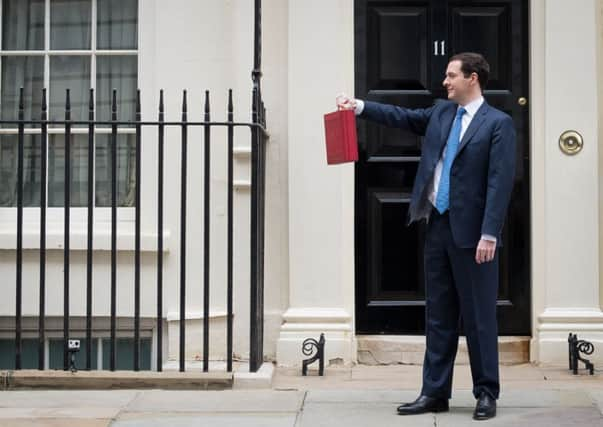Leaders: Freedom to invest is no bad thing


Giving people complete freedom over what they do with the pot of money they have saved up in a defined contribution fund, instead of effectively compelling them to take out an annuity, is a radical reform. Now the question is where this revolution will lead.
Mr Osborne’s assumption is that as he has reduced the tax charged on pension fund lump sum pay-outs which are bigger than the tax-free lump sum allowance, cutting it from 55 per cent to the pensioner’s marginal tax rate, which effectively means 20 per cent for most folk, people will now take much bigger lump sums.
Advertisement
Hide AdAdvertisement
Hide AdThe 55 per cent rate raises very little, as 90 per cent of the 400,000 people who retire each year put all but the tax-free lump sum allowance into an annuity. But Mr Osborne calculates that at a tax rate of 20 per cent, people will take a lot more than the tax-free allowance as a lump sum, increasing the revenue to the Treasury.
The Institute for Fiscal Studies thinks this is questionable as it relies on making assumptions about how people will behave.
People might, even though the returns from annuities are relatively poor, prefer to have the security of knowing that they will receive a regular monthly payment for the rest of their non-working life, in which case the Treasury will not get the bonus it expects.
But that too is questionable. As the cost of buying an annuity is likely to rise because of the change, people may prefer to have the flexibility of investing the pension pot some place from where it can be moved in search of a better return at a later date.
Some, for example, think it will cause a mini-boom in buy-to-let properties because there is still a residual belief, despite the slump in house prices over recent years, in ever-increasing property values and easy-to-secure rental income.
If that comes about, the Treasury will gain from increased stamp duties and the VAT on the goods that inevitably get bought when new owners take over a property.
Others think that people, perhaps those who don’t think they will live all that long, will just splurge their pension pot on holidays and luxuries and may even do so in advance of the April change date.
In which case Mr Osborne wins again from an uplift in consumer spending.
Advertisement
Hide AdAdvertisement
Hide AdThe point really is that nobody knows for sure what people will do with their new freedom to spend or invest their pension pot as they like.
But raising more taxes cannot, surely, have been Mr Osborne’s sole purpose. The main virtue in the reform is that it gives people a freedom which they have not previously had, except under a severe tax penalty. That cannot be a bad thing.
No need for extra time on this law
Laws that were intended to end offensive and sectarian abuse at football matches have turned out to be a lot more problematic than they were expected to be. So much so that Scottish Labour’s deputy leader, Anas Sarwar, has said the party will repeal them if it wins the 2016 Holyrood election.
At the start of the legislative process leading up to the Offensive Behaviour at Football and Threatening Communications (Scotland) Act being introduced in 2012, there was broad agreement across Scottish society that concerted action was needed to stamp out what was a blight, not just on football, but on Scotland.
A main problem has turned out to be that determining whether or not an offence has been committed depends on what “reasonable” people consider to be offensive. That can span a wide spectrum of opinion, so much so that one sheriff in Dundee memorably described the law as “mince”.
Community safety minister Roseanna Cunningham has rejected demands for an early review of it as “nonsensical”, saying that has to await the results of a Stirling University study of the law’s effectiveness, which is not expected to be published until August 2015.
But laws don’t just have to be effective, they also have to enjoy public support which this law does not now seem to have. Ms Cunningham should contemplate accelerating the review’s timetable. Enough evidence should have been collected by now for considered conclusions to be drawn and the required action to be taken. Because of the importance of the issue, this is not something that should be decided by the penalty shoot-out of an election.